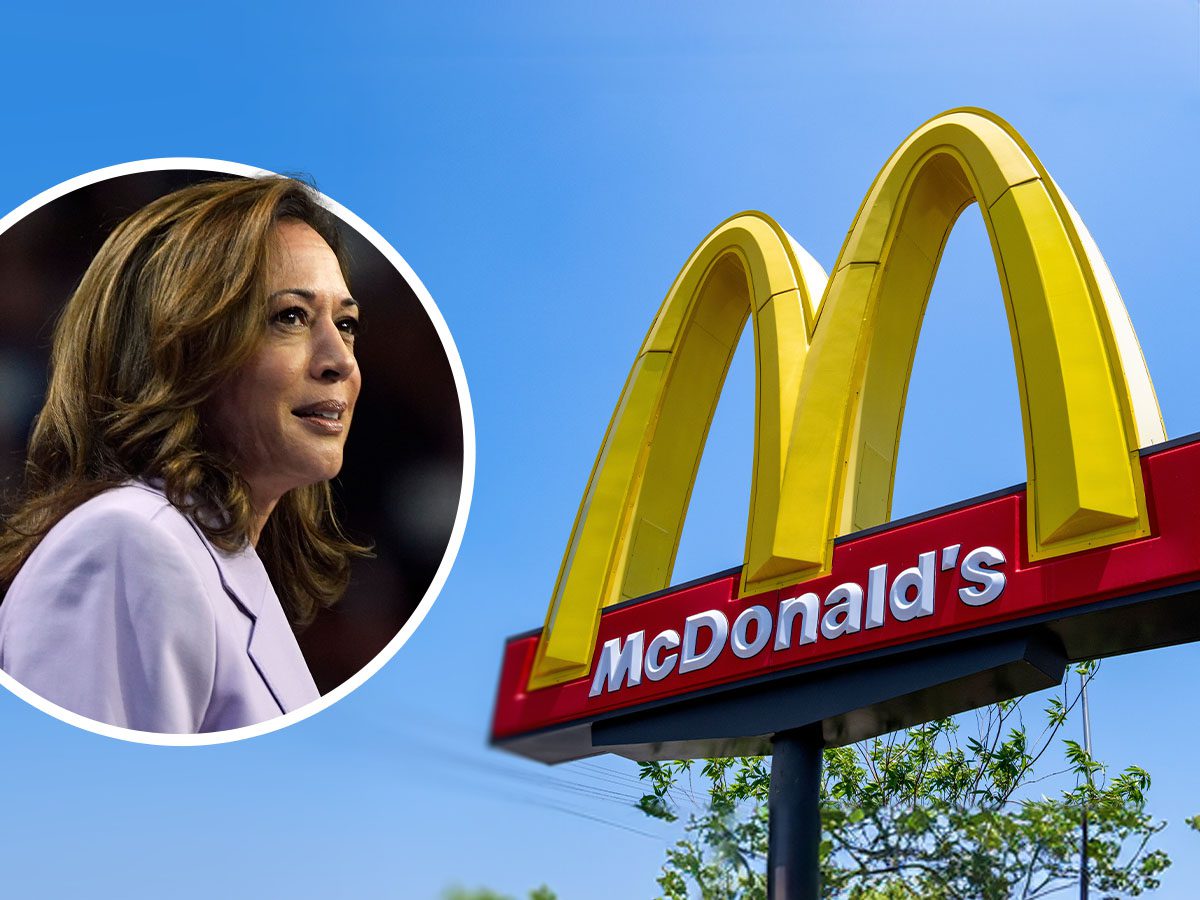
Kamala Harris, the Democratic presidential candidate, is no stranger to the pressures of a campaign trail. Yet, as she crisscrosses the nation vying for the highest office, she’s increasingly turning to a lesser-known chapter of her life to connect with voters: her time as a McDonald’s worker.
In a newly released campaign ad, the Harris team spotlights her stint at the Golden Arches. As vintage family photos scroll across the screen, the narrator emphasizes, “She grew up in a middle-class home. She was the daughter of a working mom. And she worked at McDonald’s while she got her degree.” The ad is not just about showcasing her humble beginnings; it’s about aligning herself with millions of Americans who have shared similar experiences.
Harris’s recent rally in Las Vegas brought this part of her past to the forefront. “Only in America could two middle-class kids,” she said, referencing herself and her running mate, Minnesota Governor Tim Walz, “grow up to be on a ballot for the nation’s highest offices. I had a summer job at McDonald’s,” she added, using her personal history to underscore her relatability and work ethic.
This revelation isn’t entirely new; Harris has mentioned her time at McDonald’s before. However, it’s a narrative that hasn’t been as widely publicized as other aspects of her biography—such as her tenure as California’s attorney general, U.S. senator, or vice president. However, with President Joe Biden’s unexpected exit from the race three weeks ago, many voters are just beginning to get to know Harris. For them, this tidbit might come as a surprising and refreshing insight into her early years.
McDonald’s isn’t just a fast-food giant; it’s a cultural touchstone in America. According to the chain, one in eight Americans has worked at McDonald’s at some point in their lives. This statistic is a significant part of the company’s “1 in 8 initiative,” a campaign celebrating its vast workforce, past and present. When Harris name-drops McDonald’s, she’s tapping into a shared experience that millions of Americans can relate to—a calculated move in a country where the service sector dominates the economy.
Martha McKenna, a media strategist who creates TV ads for Democratic candidates, believes that this part of Harris’s résumé isn’t just about being relatable. “Millions of people work in food service, and for her to say, ‘I have had this experience, and it has shaped my policies’ is powerful,” McKenna explains. This narrative serves as a stark contrast to her Republican opponent, former President Donald Trump, whose life has been defined by wealth and privilege. “It’s a great part of her life and experience to highlight against a guy who inherited his wealth, who was born with a silver spoon in his mouth,” McKenna adds.
Governor Walz echoed this sentiment during a speech to a union crowd, questioning Trump’s work ethic in comparison to Harris’s time in fast food. “Can you simply picture Donald Trump working at a McDonald’s, trying to make a McFlurry or something?” Walz quipped. “He couldn’t run that damn McFlurry machine if it cost him anything.”
Kamala Harris is not the only famous figure who has donned a McDonald’s uniform. Others, such as Jeff Bezos, Lin-Manuel Miranda, Pharrell Williams, Shania Twain, and even former vice-presidential candidate Paul Ryan, have spent time working at the fast-food chain. Yet, Harris’s experience goes beyond just a summer job. It’s a touchstone that she has invoked throughout her political career.
During an appearance on “The Drew Barrymore Show” in April, Harris recounted her days at McDonald’s, describing her duties as fry-making and operating the register. She even mentioned her struggle with the notoriously finicky ice cream machines. When asked what she would order from her former employer, she playfully answered, “A Quarter Pounder with cheese and fries.”
Though the exact timeline of her McDonald’s employment remains unclear, Harris has often referred to it during her advocacy for workers’ rights. In 2019, she joined Las Vegas McDonald’s workers protesting for higher wages. “I was a student when I was working at McDonald’s,” she told the crowd. “There was not a family relying on me to pay the rent, put food on the table and keep the bills paid by the end of the month. But the reality of McDonald’s is that a majority of the folks who are working there today are relying on that income to sustain a household and a family.”
Harris also stood in solidarity with Detroit McDonald’s workers in their fight for a $15 minimum wage and against workplace sexual harassment. The franchise in question eventually settled for $1.5 million, although the McDonald’s corporation managed to avoid direct liability.
Georgetown history professor Joseph McCartin sees Harris’s emphasis on her McDonald’s experience as part of a broader strategy to appeal to working-class voters. “So many people in the United States begin their working career with jobs like that,” he says. “Many people, of course, stay in those jobs for a long time and raise families, or try to, and for anybody who has worked in the industry, I think immediately that tells them something about Kamala Harris and what she’s come through on her way up.”
The emphasis on working-class roots isn’t unique to Harris. Trump’s running mate, JD Vance, has also made his working-class background a central part of his identity. McCartin notes that the focus on class issues reflects a growing dissatisfaction among workers who feel they’ve been treated unfairly. “You’ve got an incipient class discontent that gets expressed in lots of different ways—it can be expressed in unionizing efforts like the ones you’re seeing at Starbucks, or it can also be expressed in a kind of right-wing populist mode as well,” he explains.
However, highlighting her experience as a fast-food worker could be a double-edged sword for Harris. On one hand, it makes her relatable to millions of Americans who have shared similar experiences. On the other hand, it could set her up for higher expectations from the electorate. One prospective supporter jokingly posted on X, “Alright Kamala, guarantee the ice cream machine always works at @McDonalds going forward, and you ‘might’ get my vote.”


